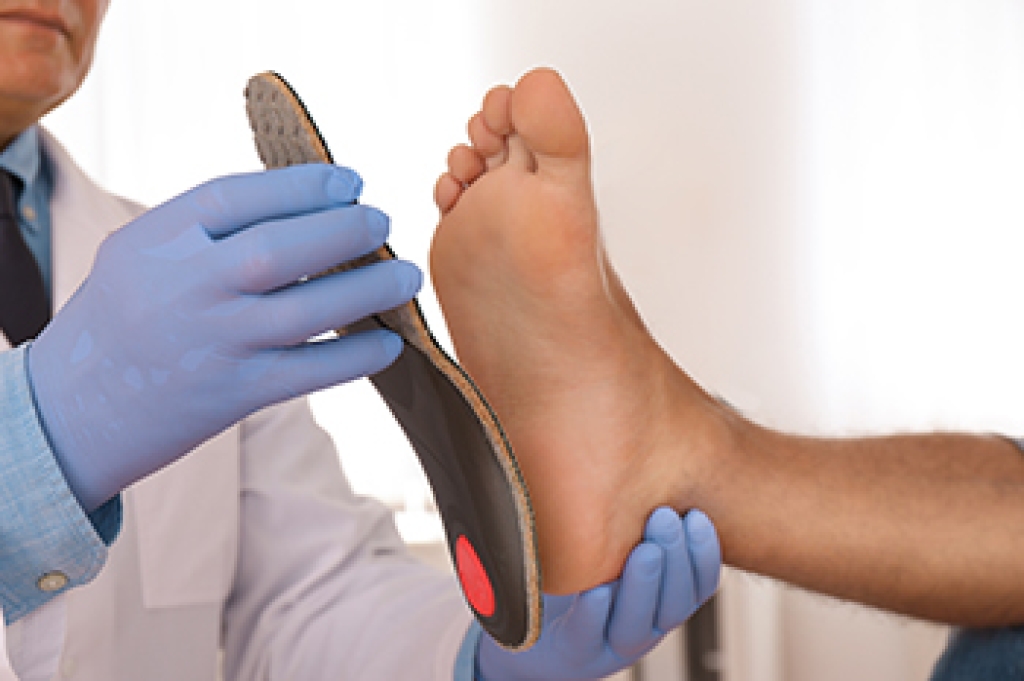
Plantar fasciitis, a common foot condition characterized by inflammation and degeneration of the tissue supporting the sole of the foot, can cause a great deal of pain. Orthotics are known to be helpful in eliminating sharp heel pain, particularly in the morning or after prolonged periods of sitting. The two primary causes associated with plantar fasciitis are muscle imbalance and poor foot biomechanics. The main types of orthotics that can provide much needed support include heel cups or pads, and shoe inserts. Heel cups are small inserts for the back of your shoe that lift the heel slightly. This reduces tension on the Achilles tendon, subsequently easing stress on the plantar fascia. Additionally, the cushioning effect helps to absorb shock. Experts suggest wearing heel cups in both shoes to avoid leg length discrepancies that could lead to further issues in the foot, knee, and back. Shoe inserts provide support beyond the heel. With a deep heel cup and contoured shape, they provide stability and biomechanical support. Half length insoles fit under the heel and arch, leaving the toes free. To find out which type of orthotics for plantar fasciitis is best for you, it is suggested that you schedule an appointment with a podiatrist for an exam and treatment options.
Plantar fasciitis can be very painful and inconvenient. If you are experiencing heel pain or symptoms of plantar fasciitis, contact Adriana Strimbu, DPM from Complete Foot & Ankle Care. Our doctor can provide the care you need to keep you pain-free and on your feet.
What Is Plantar Fasciitis?
Plantar fasciitis is the inflammation of the thick band of tissue that runs along the bottom of your foot, known as the plantar fascia, and causes mild to severe heel pain.
What Causes Plantar Fasciitis?
- Excessive running
- Non-supportive shoes
- Overpronation
- Repeated stretching and tearing of the plantar fascia
How Can It Be Treated?
- Conservative measures – anti-inflammatories, ice packs, stretching exercises, physical therapy, orthotic devices
- Shockwave therapy – sound waves are sent to the affected area to facilitate healing and are usually used for chronic cases of plantar fasciitis
- Surgery – usually only used as a last resort when all else fails. The plantar fascia can be surgically detached from the heel
While very treatable, plantar fasciitis is definitely not something that should be ignored. Especially in severe cases, speaking to your doctor right away is highly recommended to avoid complications and severe heel pain. Your podiatrist can work with you to provide the appropriate treatment options tailored to your condition.
If you have any questions, please feel free to contact our office located in Hallandale Beach, FL . We offer the newest diagnostic and treatment technologies for all your foot care needs.
